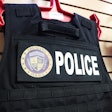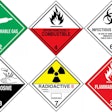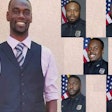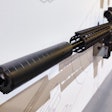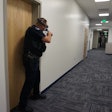There's no shortage of disparaging terms by which people sometimes refer to security officers. And while some may, in fact, be incompetent, many are not. It's one reason that I bristle when I hear cops being so dismissive of security officers. Perhaps the only other workforce groups to get badmouthed as often by cops are correctional officers and firefighters.
You'd think that as people engaged in a profession that is no less broadstroked by the public, cops would have more empathy. Ironically, many security officers will either become police officers, or are retired cops working to make a little extra. Some are even active LEOs making a little money on the side.
The fact remains that security officers have a very dangerous job, as well. In many ways, they may be even more vulnerable than police officers. Most don't get anywhere near the level of training the average officer does. Many don't have ballistic vests, or even so much as radio communication. Yet they are expected to prevent crimes.
Many do; even if they occasionally fail to prevent a crime, they may yet save lives. Richard Jewell is a prime example. The security guard was a hero who saved lives prior to the detonation of a deadly bomb at Atlanta, Georgia's Centennial Olympic Park during the 1996 Olympics. Unfortunately, the FBI and the press had a field day implicating him as responsible for planting the bomb in the first place. At least he had some measure of vindication before his death nearly a year ago.
Yet despite all he'd been through, Jewell was supportive of law enforcement officers. He's hardly an exception. Security guards are among the first to lend assistance to officers when they most desperately need it (think: getting their ass kicked), make good and often sympathetic witnesses (think: "Yeah, the cop kicked that guy's ass—and the SOB had it coming"), and have engaged active shooters ("It seemed like it was me, the gunman, and God," said security guard Jeanne Assam, reflecting on her feelings after she confronted and killed a multiple murder suspect who charged into her Colorado Springs church firing a weapon).
Security guards can also be valuable sources of intel. One motel interdiction officer made a point to develop excellent rapport with motel security. When a security guard heard a shotgun being racked as he passed a hotel room, the first thing he did was notify the interdiction officer. Absent the rapport, it is possible that he might have been less conscientious about getting in touch with the officer.
While some leave their mark on history—the vigilance of one Watergate security guard ultimately led to a President's departure from office—most security guards blend into the background. Store security often serve as informants on petty theft crimes; apartment security has time and again proven to be first witnesses on everything from domestic violence to car burglary rings.
But then, security guards often work at or near high crime venues, and are often themselves targeted. Those working at night clubs are particularly vulnerable. While threats of retaliation are often made by 86'd patrons, thankfully, most are not played out. But they do happen.
True, some security guards are dirtbags. Names like Tim McVeigh and Kenneth Bianchi come to mind. But then, despite all manner of background checks and psych exams, the law enforcement community still has its fair share of sociopaths.
So get to know your local security guard. Find out what he's about. Because even if he does turn out to be a first class screw-up, shouldn't you know that, as well?






